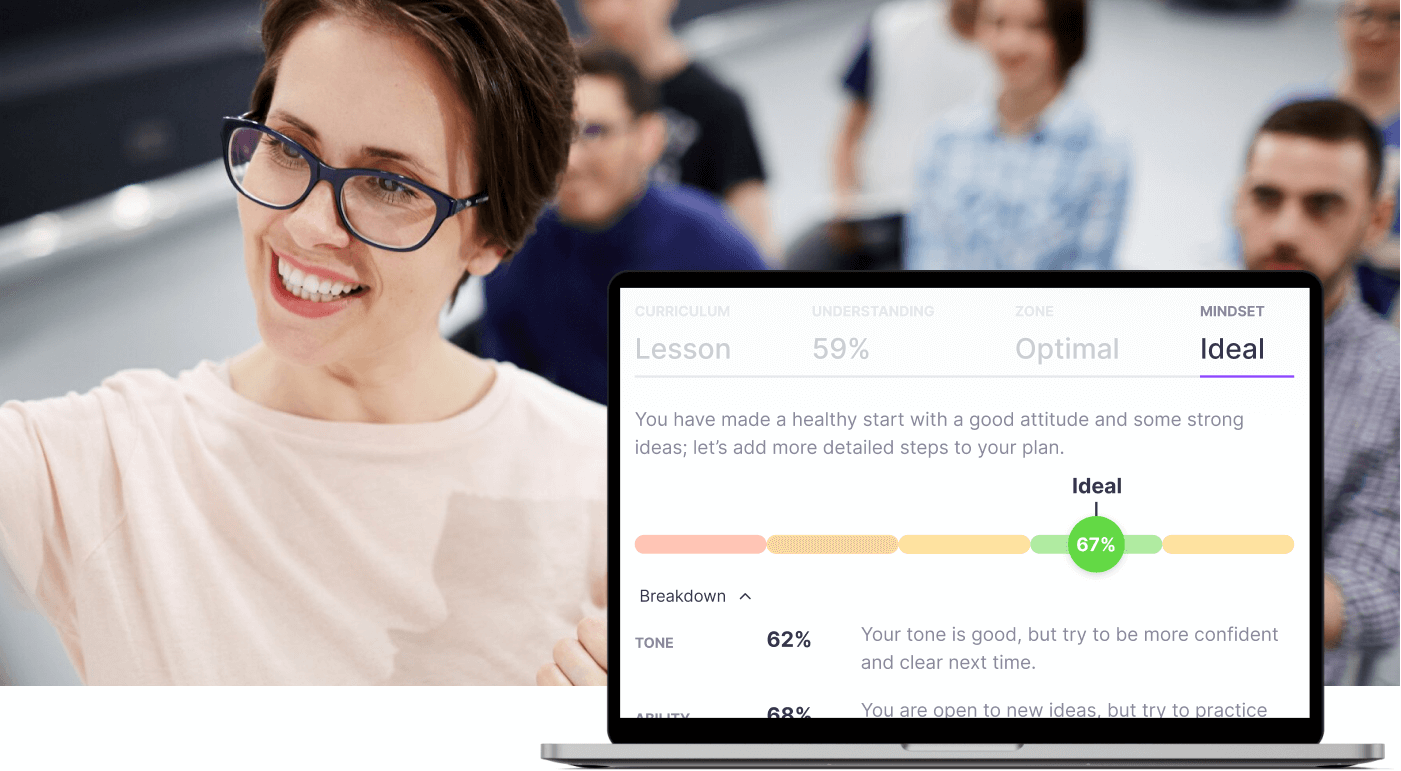
After five years at Swivl working with schools on video coaching programs (our company has been working with them for 13 years), I’ve seen a pattern emerge that we need to address: most schools are implementing video coaching programs in a way that undermines their chance of success. As someone who has watched hundreds of these programs struggle to get off the ground, I want to share what we’ve learned about building effective, sustainable video coaching initiatives.
Trust is the most challenging foundation to build, but it needs to come first
The bedrock of any successful video coaching program lies in trust, yet this is precisely where I see many schools stumble in their implementation. The relationship between teachers and those reviewing their videos—whether coaches or administrators—creates a complex dynamic that can make or break a program before it truly begins. This trust challenge manifests in several critical ways.
Teachers need to know this isn’t a “gotcha!” exercise
I’ve seen countless teachers view classroom recording with deep apprehension, seeing it as potential evidence against them rather than a tool for growth. This defensive mindset stems from years of traditional evaluation systems that I was apart of once too – where observation often feels more punitive than developmental. When teachers believe recordings might be used against them in performance reviews or disciplinary actions, they’re unlikely to engage authentically with the process.
Building trust takes time, but you have no time
In our experience, traditional video programs typically require a year or more just to establish the necessary trust foundation. This extended timeline isn’t merely about getting comfortable with technology—it’s about building genuine relationships between teachers and observers. We’ve watched thousands of schools eager to see quick results rush this crucial foundation-building phase, unknowingly sabotaging their program’s long-term success.
There will always be performance anxiety to overcome
Even when teachers intellectually understand the developmental purpose of recording, I’ve observed how the presence of a camera can trigger performance anxiety that undermines the entire observation process. I’ve even experienced this when my teaching was recorded! Teachers need to become comfortable with:
- Camera placement and technical logistics
- Their on-screen presence and voice
- The vulnerability of sharing their practice
- Watching themselves teach without harsh self-judgment
Teachers stage their performance rather than teach authentically
When trust isn’t firmly established, we consistently see recordings capture staged performances rather than authentic teaching moments. Teachers may:
- Over-prepare for recorded lessons
- Stick to “safe” teaching strategies
- Avoid taking risks or trying new approaches
- Focus more on appearance than student learning
When structure blocks success: The limits of fixed recording cycles
Another significant challenge I’ve observed in video coaching programs lies in the conflict between operational constraints and effective teacher development. Schools often implement standardized recording schedules—typically every six to eight weeks—with uniform guidelines about what, when, and where to record. While this approach may satisfy logistical needs and resource limitations, it creates a fundamental disconnect from how teachers actually grow and develop.
This standardized, periodic approach creates several critical problems:
Teachers need to see the good, the bad, and the ugly more often
We’ve learned that teachers need regular evidence of both success and failure to build confidence and resilience in their practice. When recordings happen infrequently, each session carries too much weight. A perceived failure during these rare recording sessions can feel devastating, while small daily victories go undocumented and unrecognized.
“I wish you could see what happened last week…”
I’ve seen how the predetermined recording schedule often fails to capture the most meaningful teaching moments. A teacher might have a breakthrough with a challenging student, successfully implement a new teaching strategy, or face an unexpected classroom challenge—all between scheduled recording sessions. These valuable learning opportunities slip through the cracks of rigid recording schedules.
A one-size-fits-all approach ensures you fit no one
Through our work with thousands of teachers, we know that every educator has a unique growth trajectory and specific areas they want to improve. However, when programs require all teachers to record standard 45-minute lessons at predetermined intervals, they ignore these individual development needs. A new teacher working on classroom management needs different observation opportunities than a veteran teacher refining advanced instructional strategies.
Recording more often can actually work against you
While more frequent recording sessions might better serve teacher development, I’ve seen firsthand how the time-intensive nature of video review makes this impractical. Administrators and coaches simply cannot sustain the three-to-one ratio of review time to recording time needed for proper analysis. This forces programs to choose between quantity and quality, ultimately sacrificing personalization for practicality.
MirrorTalk: Reimagining teacher development
The challenges I’ve described call for a fundamental reimagining of teacher development. That’s why we created MirrorTalk to transform this landscape by placing regular reflection at the heart of professional growth, addressing each challenge head-on:

Analyze the right things at the right time
We’ve ensured that time constraints no longer need to dictate development opportunities. MirrorTalk’s AI technology:
- Analyzes verbal reflections instantly
- Delivers actionable insights in seconds, not hours
- Enables frequent reflection cycles without overwhelming staff
- Identifies patterns across multiple reflections
- Surfaces insights that might be missed in traditional review
Gain student insights to compliment observations
Beyond teacher performance, we’ve built MirrorTalk to capture the crucial student perspective that traditional video often misses:
- Regular student feedback provides continuous insight into learning impact
- Multiple data points reveal patterns in student thinking
- Student mindset and engagement metrics inform teaching strategies
- Student development zones become clearer
- Teachers gain a more complete picture of their classroom dynamics
Meld the process to the teacher, not the teacher to the process
We’ve moved beyond one-size-fits-all approaches to deliver truly personalized professional development:
- Teachers reflect on moments most relevant to their growth
- AI-powered analysis identifies individual patterns and growth opportunities
- Reflection cycles align with personal development goals
- Recording sessions become more targeted and meaningful
- Professional development adapts to each teacher’s unique journey
For schools looking to implement or improve their video coaching programs, MirrorTalk offers the essential groundwork for success. By addressing the fundamental challenges that often derail traditional approaches, we create an environment where video coaching can truly fulfill its potential as a transformative professional development tool.
Put your trust in us, we know how to help
Ready to build a stronger foundation for your school’s video coaching program? Let’s talk about how MirrorTalk can help transform teacher development in your school. Your teachers deserve a professional development approach that builds trust, saves time, and delivers personalized growth opportunities. We’d love to show you how we make that possible.
Contact us today to learn how our solutions can help your school build a more effective, trust-based approach to video coaching.